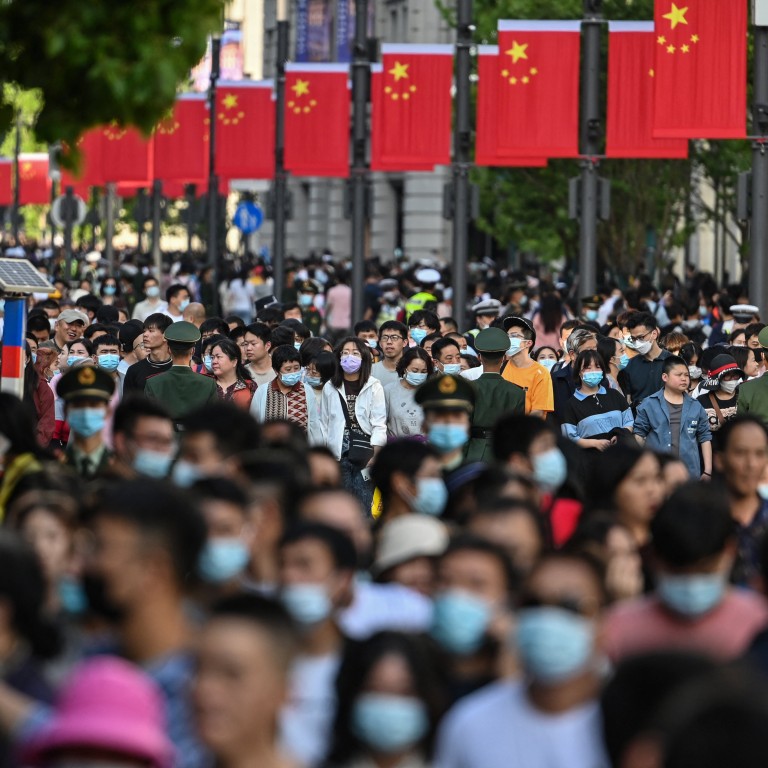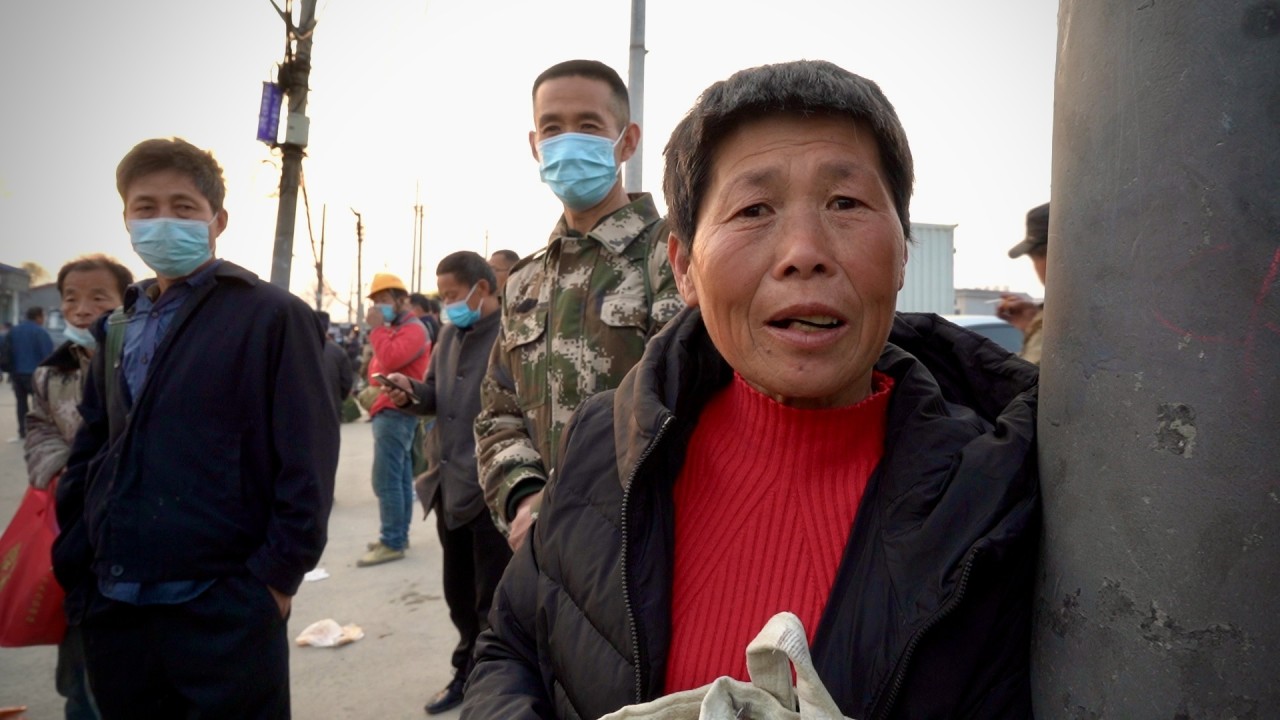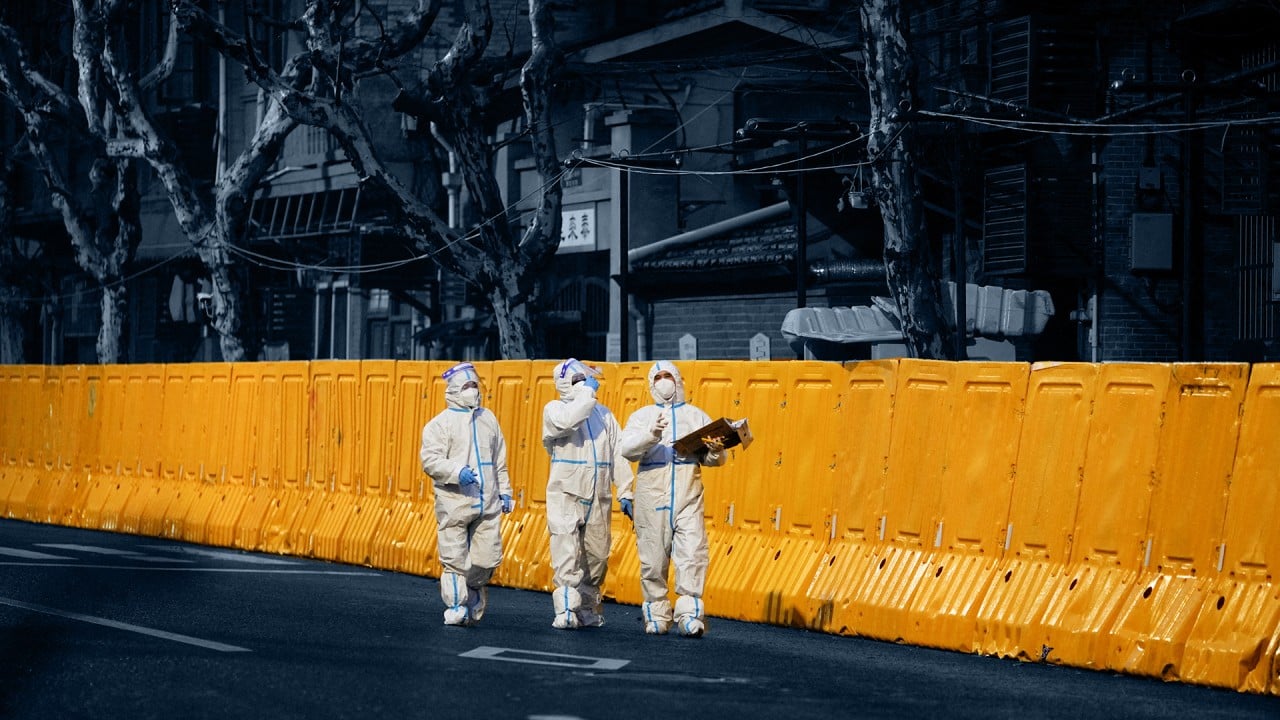
Coronavirus: China’s consumption expected to be ‘dismal’ over Labour Day holiday as Omicron wave rolls on
- Analysts have made gloomy predictions for consumption over the Labour Day holiday, as health fears and Covid-19 restrictions weigh on domestic travel
- Omicron outbreaks and China’s zero-Covid policy, which has resulted in lockdowns across the country, have hit the services sector and consumption hard
Consumption is likely to remain weak over China’s Labour Day holiday, industry insiders say, as Covid-19 lockdowns and transport restrictions disrupt travel plans and holiday spending.
The hardline policy, which relies on stringent lockdowns, mass testing and quarantine in government facilities, has scuttled Labour Day holiday plans for many between April 30 to May 4.
Ryan Duan, a 24 year old living in Beijing, planned to visit Tibet over the holiday break, but has been put off by its strict entry rules.
Visitors cannot enter the autonomous region if they have a risk alert on their health code, which is recorded on a health-tracking app required to access almost anywhere in China, from shops to taxis.
Fearful he will be denied entry or quarantined when he arrives, Duan has cancelled his trip.
“I can’t go anywhere if Beijing does not lose its risk alert, as many other destinations won’t let me in,” Duan said.
For those willing to deal with the extra hassle, travel trends are being shaped by the latest Covid-19 outbreak, according to a report released by online travel agency Tongcheng Travel last week.
Popular destinations for trips during the five-day break must have a strong historical or cultural background, have a relatively large population, but also a stable local pandemic situation, the report said.
‘Factory jobs can’t teach you anything’: China’s migrants seek pastures new
Museums, parks and camping were among the top five search terms before the holiday period, the report said.
While some Chinese might still be hopeful of a trip away, analysts have made gloomy predictions for consumption over the Labour Day holiday.
Zhou Mingqi, founder of tourism consultancy Jingjian Consulting, said consumption is likely to see a large drop.
“On a national level, there are still dozens of cities under lockdowns,’ Zhou said. “This has a very large impact on consumption confidence, as well as consumption ability.”
His view is shared by Max J. Zenglein, chief economist at think tank the Mercator Institute for China Studies.
I’m expecting very dismal spending patterns over the holiday
Zenglein said the risk of lockdowns will persist throughout the year, which will impact services and consumption. He was pessimistic a recovery would happen any time soon.
“There’s very little reason to believe that it’s going to be a good holiday for spending in tourism,” Zenglein said. “I’m expecting very dismal spending patterns over the holiday.”
China reported 18,502 local cases of Covid-19 on Friday, with most infections recorded in Shanghai, which is now in its fourth week of a citywide lockdown.
Cases have also been reported in other regions such as the provinces of Jilin, Heilongjiang and Jiangsu.
Beijing’s local government has urged residents to stay home for the upcoming holiday, while limiting crowd numbers and capacities for different venues and attractions.
Fears about health and uncertainty over pandemic curbs have weighed on consumption during recent holidays.
Trips during the so-called grave-sweeping festival were at 68 per cent of the pre-pandemic level in 2019, according to data from the Ministry of Culture and Tourism.
Tourism revenue over the festival tumbled by 30.9 per cent compared to last year, totalling 18.78 billion yuan (US$2.95 billion), less than 40 per cent of the value in 2019.
Last year, China recorded a strong rebound in tourism over the Labour Day holiday, with domestic travel surpassing pre-pandemic levels.
Some 230 million trips were made over the five-day period, a 119.7 per cent increase compared to 2020 and 3.2 per cent higher than pre-pandemic levels, the Ministry of Culture and Tourism said.
Tourism revenue also jumped 138.1 per cent year on year, though only reached 77 per cent of the pre-pandemic value.
But few analysts are confident this will be repeated in 2022.
“The latest Omicron wave has dealt a severe blow to China’s consumption, especially for in-person services such as tourism and catering,” said Wang Lisheng, China economist for Goldman Sachs.
It is clear that the negative Covid impact will extend to April and possibly beyond
Wang said it might take “a longer time and more effort” for the Chinese government to contain the latest outbreak, citing the number of cities with districts designated high-risk or mid-risk, low nationwide mobility and local governments prioritising virus containment.
“It is clear that the negative Covid impact will extend to April and possibly beyond, boding poorly for consumption during the upcoming Labour Day Golden Week (especially for tourism and catering) and leading to a weak start to the second quarter,” he wrote in an email reply.
Iris Pang, chief Greater China economist at ING Bank, also believes that the Labour Day holiday will be a write off for most Chinese cities.
“We can only hope that the local government can offer more relief measures to these affected small businesses,” Pang said.





